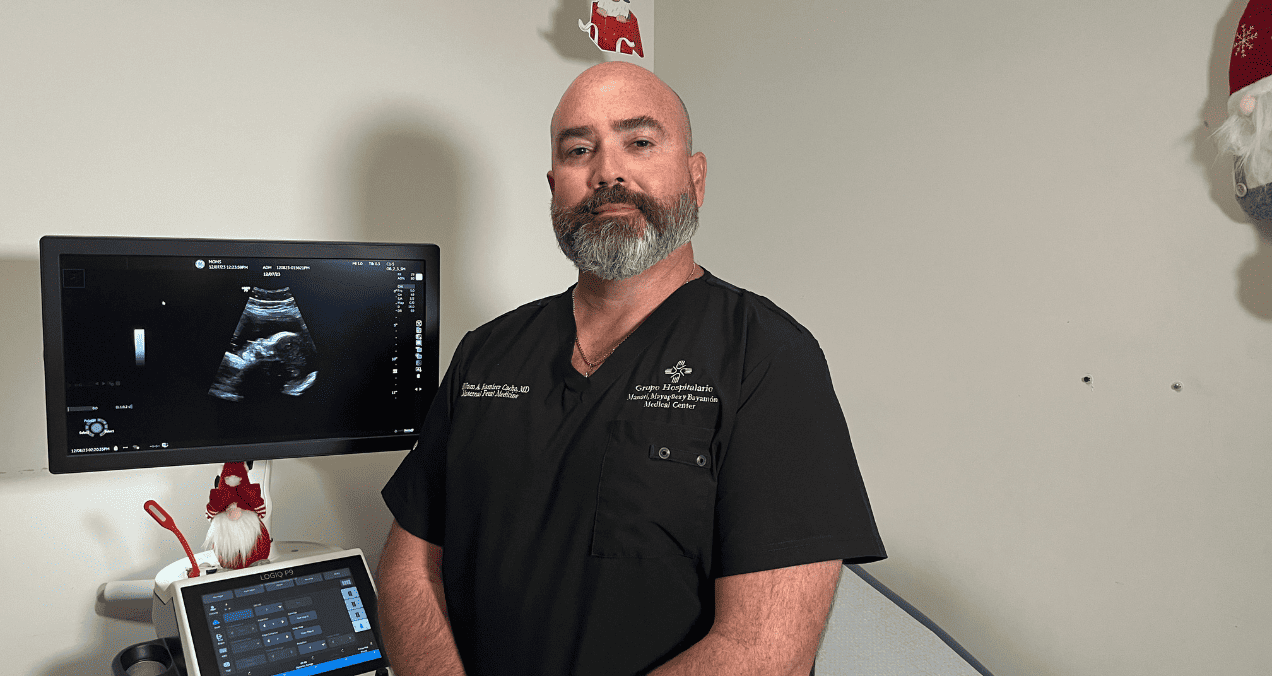Cancer and the Value of Empathy with Dr. William Ramirez

The doctor has been fighting the disease for a little over two years, claiming that he has found a balance between his profession and personal life.
Dr. William Ramirez, OB/GYN, maternal-fetal medicine specialist and multiple myeloma survivor. Photo: Medicine and Public Health magazine.
In September 2021 Dr. William RamirezAn outstanding obstetrician-gynecologist specializing in maternal-fetal medicine received an unexpected diagnosis that changed the course of his life: multiple myeloma.
“This is a unique moment in life, this is a situation where your mind becomes clouded, from the clinical aspect, as a professional in a subspecialty, and you fall at that moment, there are a lot of mixed feelings, a lot of thoughts, a lot of ideas. come,” express.
A healthcare professional experienced significant changes in his life and outlook after receiving a diagnosis following research due to back discomfort. During this period, he reflected on his achievements, upcoming activities, the people around him and how the situation might affect them.
Time to rethink your life
At this time his professional practice reached its peak and the services and achievements in the hospitals where he worked experienced marked growth and development. On a personal level, his daughters were entering adulthood and he was in a new phase of his family life with his current wife.
“All of these things came together in my thoughts and feelings and caused a series of reactions in me that essentially restructured me and started looking for solutions and alternatives,” he added.
Problems you have faced
The specialist highlighted the most significant challenges he faced as a healthcare professional when he had to adapt his lifestyle, especially in relation to the treatment he was about to receive: chemotherapy. Coping with a weakened immune system and spinal injuries that could limit his mobility in the future presented a significant challenge. Adjusting all these considerations for both the short and long term has proven challenging.
“For me, the advantage is that I work in a hospital group where we are all like a big family, and I have had the support of many colleagues who helped me cure my disease and helped me continue to care for my patients because I belong to the group, where we trained with three other gynecologists and are now ten of us, where the care of our patients was slightly modified due to my condition,” he recalls.
As a healthcare professional, you tend to neglect your own well-being.
Dr. Ramirez reflected on the tendency of health care workers to sometimes neglect their own health, an observation that applies not only to cancer patients, but also to many colleagues in various fields. She stressed the importance of balancing daily life, learning to manage stress and seeking professional support, whether through counselling, psychologists or other support providers.
“I am still on treatment, chemotherapy, trying to complete the initial process, thank God the bone marrow transplant was successful and maintenance treatment is for the next 6-8 months as the next studies and biopsies are negative as they have turned out so far. The day can sometimes be stressful, when I am with a lot of patients, when I have to travel, it is tiring but physically, but I feel like I have reached a point of balance,” he said.
Lessons Learned
“The most important lesson is that when you work in healthcare and you see different things, different diagnoses, you try to have empathy for patients, to be able to put yourself in that patient’s shoes, you can try to understand, but not until the doctor will become a patient. We cannot lose focus, we must look back at what we have done,” he concluded.
